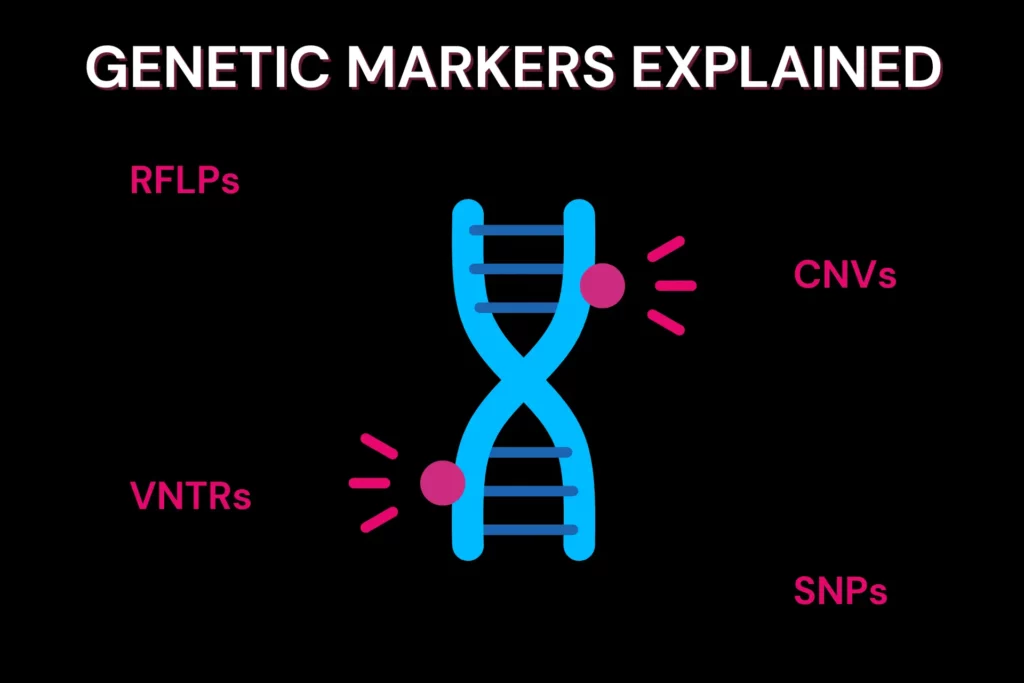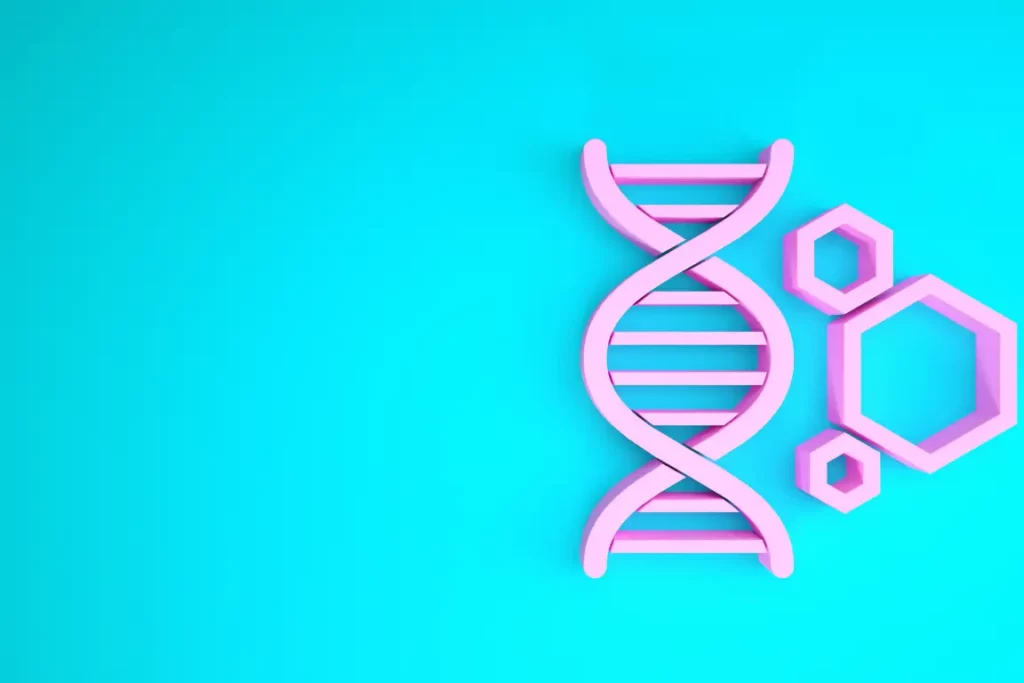DNA testing is rapidly changing the way we approach our health. It provides deep insights into our genetic makeup, opening doors to understanding risks for conditions like heart disease, diabetes, and cancer, long before symptoms emerge. Research suggests that 80% of chronic diseases are preventable with the proper knowledge and lifestyle changes. What if DNA testing could provide the exact information needed to personalize your health strategies? The potential benefits are vast, from enhancing your diet to managing mental health. Keep reading to discover three ways DNA testing can improve your health.
The Limitations Of Current Healthcare
The healthcare system faces several key limitations that affect patient care.
Here are some of the significant challenges:
- Medical errors: An estimated 98,000 Americans die annually due to preventable mistakes, according to the Institute of Medicine.
- Short-term care focus: Chronic condition patients are underserved, with 72% finding it hard to access essential care.
- Poor coordination: Inefficiencies arise from inadequate communication among healthcare providers, leading to repeated visits and readmissions.
- Lack of IT adoption: Healthcare's adoption of information technology is slow compared to other industries, placing it 38th out of 53 IT investment sectors.
- Rushed consultations: On average, doctors interrupt patients within 18 seconds, which leaves patients unheard and affects the doctor-patient relationship.
- Workforce shortages: Nursing shortages and workplace pressures result in an overburdened and exhausted healthcare workforce.
Where DNA Testing Comes In
DNA testing provides essential information in several areas, from health to family connections, making it a vital tool for addressing key issues today, such as:
- Family relationship testing: DNA tests confirm paternity and establish biological relationships between family members, which is crucial for legal and inheritance matters.
- Health risk assessment: DNA tests can identify genetic risks for diseases like cancer, heart disease, or neurological conditions, helping individuals take preventive health measures.
- Ancestry and ethnicity: DNA testing reveals ethnic origins and helps trace family history, providing insights into one's background.
- Genetic carrier screening: DNA testing can identify if individuals planning to have children carry genes for inherited conditions like cystic fibrosis or Tay-Sachs, aiding in family planning decisions.
- Forensic testing: DNA testing is used in criminal investigations to solve cases, identify suspects, and link evidence to individuals.
- Genealogical research: DNA testing allows you to explore your family history, connect with distant relatives, and learn more about your ancestral background.
3 Ways DNA Testing Can Improve Your Health
DNA testing has evolved beyond ancestry research and is now a valuable tool for improving health.
Here are three ways DNA testing can enhance your health:
Fine-tuning Your Diet
DNA testing reveals how your body processes nutrients, reacts to specific foods, and metabolizes fats, carbs, and proteins.
For example, it may show if you're predisposed to lactose intolerance, gluten sensitivity, or how you metabolize caffeine.
This information allows you to adjust your diet to meet your body's needs, leading to better digestion, energy, and overall health.
Anticipating Disease Risk
DNA tests highlight your genetic risk for conditions like heart disease, diabetes, or certain cancers.
While these results don't guarantee you'll develop these conditions, they enable you to take proactive measures.
For instance, if you're more prone to heart disease, exercising regularly, eating a heart-healthy diet, and scheduling routine check-ups can be practical steps.
Improving Mental Health
DNA testing provides valuable information on genetic factors that affect mental health.
Some tests analyze genes associated with conditions like depression, anxiety, or ADHD.
Knowing your genetic predisposition helps develop a personalized mental health plan with therapy, lifestyle changes, or treatments.
Note: Always consult a doctor to interpret your DNA test results and create a personalized health plan based on your genetic profile.
How Safe Is DNA Testing Today?
DNA testing is now considered highly accurate, with reputable companies reporting reliability rates exceeding 99.9%.
Despite this accuracy, privacy remains a significant concern, as genetic data may be vulnerable to unauthorized access if not securely stored after submission.
Even with security measures like encryption, your genetic information remains vulnerable.
It could be shared without your consent with entities like research institutions or pharmaceutical companies.
Protecting your privacy can involve choosing providers with strong data privacy policies, being mindful of how your data is utilized, and minimizing data sharing.
Since genetic data cannot be changed like a password, users must carefully consider the long-term implications before undergoing DNA testing.
Where Can I Get A DNA Test?
You can get a DNA test from several places:
- At-home kits provided online by companies like 23andMe or AncestryDNA. Provide a saliva sample (or cheek swab, etc.) and mail it back for analysis.
- Local clinics or hospitals for more specific tests like paternity or health risk assessments.
- Specialized DNA testing labs or accredited centers for more specialized or legal tests (e.g., court cases, immigration).
- Pharmacies where you can buy kits and send the sample to a designated lab for processing.
FAQs About DNA Testing
What Are The Biggest Issues In Healthcare Today?
The rising cost of healthcare is a big concern for people, governments, and employers.
Expensive treatments, medicines, and administrative costs make it harder to afford care and increase health inequalities.
One primary reason for these high costs is inefficiency in healthcare systems.
Many tasks, such as insurance claims, patient billing, and record management, still require manual work. This slows things down and raises expenses.
Additionally, healthcare relies on unstructured data, which makes it challenging to analyze and use information appropriately.
These inefficiencies worsen other problems, such as limited access to care, managing long-term illnesses, and meeting the needs of an aging population.
What Is The Downside Of DNA Testing?
DNA testing has several downsides, including:
- Privacy concerns: If not properly secured, bad actors could mishandle DNA data, leading to identity theft or unpermitted access.
- Emotional impact: Unexpected results, such as discovering unknown relatives or health predispositions, can be a source of stress and anxiety.
- Limited accuracy: Some tests, especially for ancestry or disease risk predictions, may not provide clear answers.
- High costs: Advanced DNA tests are expensive, and most insurance plans don't include coverage.
- Ethical issues: Results might lead to family conflicts or prompt concerns about genetic favoritism (or lack thereof) in the workplace or insurance underwriting.
- Limited scope: DNA tests don't account for environmental or lifestyle factors that affect health.
How Much Does A Full Genetic Test Cost?
According to a systematic review, whole-exome sequencing (WES) costs between $555 and $5,169, while whole-genome sequencing (WGS) costs between $1,906 and $24,810.
These estimates vary based on laboratory fees, sequencing depth, data interpretation, and whether clinical consultations are included.
The review also found that many cost analyses lack transparency, making it unclear which components are covered.
While WES and WGS can potentially improve genetic diagnosis, more research is needed to evaluate their cost-effectiveness in clinical practice.
What Cannot Be Detected In A Genetic Test?
While genetic tests provide valuable insights, they do not offer a complete picture of health or future risks.
They mainly identify common genetic variations but may miss rare ones contributing to certain conditions.
Genetic testing cannot detect diseases influenced by environmental factors, infections, or random events.
These tests also cannot confirm whether someone will develop symptoms of a disorder, how severe it will be, or how it may progress.
Additionally, many genetic disorders have no effective treatment, even if identified.
Summary: How DNA Testing Can Improve Your Health
- DNA testing provides insights into genetic risks for diseases, enabling early prevention.
- It helps optimize your diet based on how your body processes nutrients.
- DNA testing offers valuable information on genetic factors affecting mental health.
- It allows you to take proactive health measures based on your genetic predispositions.
- Data privacy is a concern, so choose providers with strong protection policies.
- DNA tests are available through at-home kits, clinics, and specialized labs for various health and ancestry assessments.
Others Are Also Reading

Genetic Markers Explained

What Are RSIDs?

Genes vs. Lifestyle: Striking The Right Balance
References
https://pubmed.ncbi.nlm.nih.gov/28523941
https://www.ncbi.nlm.nih.gov/books/NBK221522
https://www.apollohospitals.com/diagnostics-investigations/dna-test
https://www.nhlbi.nih.gov/health/cystic-fibrosis
https://www.mayoclinic.org/diseases-conditions/tay-sachs-disease/symptoms-causes/syc-20378190
https://www.bda.uk.com/resource/dietary-dna-tests-how-they-work-and-what-theyre-useful-for.html
https://www.hudsonalpha.org/understanding-genetic-risk-how-genetics-shape-your-health
https://pmc.ncbi.nlm.nih.gov/articles/PMC9840515
https://www.cdc.gov/adhd/about/index.html
https://www.kff.org/health-costs/issue-brief/americans-challenges-with-health-care-costs/
https://www.nature.com/articles/gim2017247
https://medlineplus.gov/genetics/understanding/testing/riskslimitations
https://my.clevelandclinic.org/health/diseases/21751-genetic-disorders




